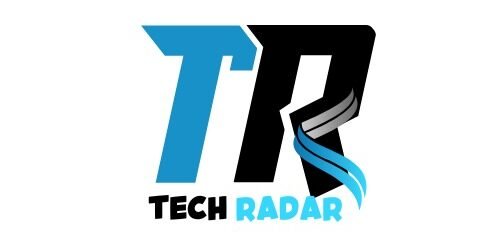Introduction to WellHealth How to Build Muscle Tag
Building muscle isn’t just about lifting heavy weights; it’s a well-rounded approach involving proper exercise, nutrition, and rest. Whether new to strength training or looking to refine your technique, this guide will help you understand the critical elements of building muscle. This comprehensive guide will explore how to develop muscle strength, the proper nutrition to support your fitness goals, and common mistakes to avoid. Ready to bulk up? Let’s dive in.
Understanding the Basics of Muscle Growth
Muscle growth, or hypertrophy, occurs when muscle fibers are damaged during exercise, repaired, and grow thicker. This process is primarily driven by strength training and an appropriate diet. Here, we’ll examine the science behind muscle building and how you can effectively stimulate this growth.
The Role of Strength Training
Strength training, including exercises like squats, deadlifts, bench presses, and pull-ups, is crucial to muscle growth. These exercises cause micro-tears in muscle fibers, which repair and grow stronger.
Key Points:
- Start with compound movements like squats and deadlifts to target multiple muscle groups.
- Gradually increase weights as you progress to challenge your muscles continually.
- Maintain proper form to prevent injuries and maximize gains.
Progressive Overload
Progressive overload is the gradual increase in stress placed on the body during training. This principle is essential for continuous muscle growth.
Critical Tips for Progressive Overload:
- Increase weight or resistance gradually.
- Add more reps or sets as your strength improves.
- To test endurance, shorten the intervals of rest between sets.
Nutrition for Muscle Building
No amount of lifting will help you build muscle if your nutrition isn’t aligned with your goals. Eating the right foods is crucial for muscle repair and growth.
Importance of Protein
Protein is the building block of muscles; without sufficient protein, your muscles can’t grow. Aim to consume a high-protein diet to support muscle recovery.
Sources of Protein:
- Turkey, beef, and chicken are examples of lean meats.
- Plant-based sources like lentils, chickpeas, and tofu.
- Protein supplements like whey or casein for quick and convenient intake.
Daily Intake Recommendation:
Aim for at least 1.6-2.2 grams of protein per kilogram of body weight for muscle building.
Carbohydrates and Fats
While protein is essential, carbohydrates and fats are equally crucial. Carbs provide the energy needed for intense workouts, while healthy fats aid hormone production, including testosterone, necessary for muscle growth.
Best Sources of Carbohydrates and Fats:
- whole grains such as quinoa, brown rice, and oats.
- Fruits and vegetables for fiber and vitamins.
- unsaturated fats found in almonds, avocados, and olive oil.
Workout Routine for Building Muscle
A solid workout routine is fundamental in muscle development. It should include both resistance training and adequate rest for optimal results.
Designing Your Routine
- Frequency: Train your muscles at least twice a week for each group.
- Sets and Reps: Aim for 3-4 sets of 8-12 reps for each exercise, which is the ideal range for hypertrophy.
- Rest Days: Ensure 48 hours between training sessions for the same muscle group to allow for recovery.
Sample Workout Plan:
- Day 1: Chest and Triceps (e.g., Bench press, Push-ups, Tricep dips)
- Day 2: Back and Biceps (e.g., Deadlifts, Pull-ups, Barbell curls)
- Day 3: Legs and Shoulders (e.g., Squats, Leg presses, Overhead presses)
Rest and Recovery
It is during rest that muscles expand, not during exercise. Get adequate sleep, at least 7-9 hours per night, and take rest days seriously. This will prevent overtraining and help muscles recover faster.
Common Mistakes to Avoid When Building Muscle
Many beginners make mistakes that can slow down their muscle growth. Here are a few typical dangers along with tips for avoiding them.
Overtraining
While it might be tempting to work out daily, overtraining can lead to injuries and stunt muscle growth. Your muscles need time to repair and grow, so don’t skip rest days.
Solution:
Follow a structured workout plan that allows for rest and recovery.
Inadequate Nutrition
With the proper fuel, your muscles will grow. Ensure you’re eating enough calories, especially from protein and healthy fats.
Solution:
Track your macronutrients and adjust your diet according to your muscle-building goals.
FAQs About Building Muscle
How often should I train each muscle group?
Train each muscle group at least twice a week, allowing for 48 hours of rest between sessions for recovery.
How much protein do I need to build muscle?
You should aim for at least 1.6-2.2 grams of protein per kilogram of body weight each day.
Do I need to take supplements?
Supplements like protein powder or creatine can be helpful but aren’t necessary if you get enough nutrients from your diet.
How long does it take to see muscle growth?
With consistent training and proper nutrition, you can start seeing muscle growth within 4-6 weeks, although this varies per individual.
Can I build muscle and lose fat at the same time?
Yes, but it requires careful calorie and nutrient balance. Focus on high protein intake and a slight calorie deficit.
Is cardio terrible for muscle gain?
Cardio isn’t right, but excessive cardio can hinder muscle gain. Balance your workouts with strength training and moderate cardio.
Conclusion
Building muscle takes dedication, the right workout routine, and proper nutrition. By following the strategies outlined in this guide, you’ll be well on your way to achieving your muscle-building goals. Whether you’re a beginner or an experienced lifter, consistency, and the right approach will yield results. Remember to rest, eat well, and train smart.
For further details on enhancing your fitness routine, check out Wellhealth’s comprehensive resource on muscle growth.











